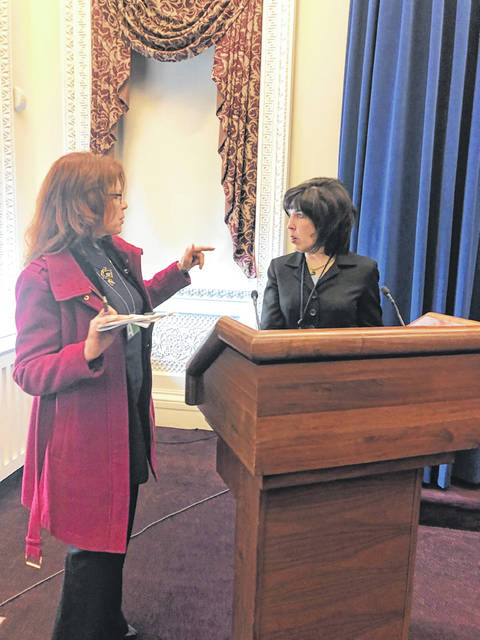
WASHINGTON, D.C. – Shelby County Commissioner Julie Ehemann joined nearly 2,000 other county leaders in Washington, D.C. for the National Association of Counties (NACo) annual Legislative Conference March 2-6. Participants met with members of the Trump administration and Congress on key issues like disaster recovery, the opioid and substance abuse epidemic, broadband accessibility and revitalizing American infrastructure.
“Counties work within the guidelines given to us by the State with no authority to create most of our own rules. As such it is imperative that we educate them to our needs and situations within our own communities,” said Ehemann.
“Decisions made by the White House, Congress and federal courts have major impacts on our ability to lead our communities and pursue a better future,” said NACo President Greg Cox. “This conference is an opportunity to strengthen our relationship with our federal partners as we help residents forge pathways to live well and thrive.”
In meetings with lawmakers and administration officials, county leaders outlined several key federal policy priorities including:
• Promoting county infrastructure priorities in a comprehensive infrastructure package
• Promoting mental health, substance use disorders treatment and criminal justice reform, and
• Boosting broadband deployment and accessibility while preserving local zoning authority.
As part of its policy advocacy, NACo launched an updated “Counties Matter” campaign to illustrate counties’ vast role in advancing America’s policy priorities at the local level. NACo also launched a new and improved County Explorer. The tool, which allows users to map data at the county level, now works on mobile devices and is more user-friendly.
Conference participants heard from congressional and administration leaders, including U.S. Secretary of Agriculture Sonny Perdue, U.S. Secretary of Housing and Urban Development Ben Carson, U.S. Secretary of Labor Alexander Acosta, U.S. Senators Joni Ernst, Amy Klobuchar and Marco Rubio, Assistant to the President and Senior Counselor Kellyanne Conway and Co-Founder of America Online Steve Case. As a member of the Rural Action Caucus, Ehemann also met with members of the White House staff including the office of National Drug Control Policy (ONDCP) Senior Adviser for Rural Affairs, Anne Hazlett.
Counties officials were very active on Capitol Hill, meeting with senators and representatives. Ehemann met directly with U.S. Rep Jim Jordan, R-Urbana, 4th District, to discuss Water Quality, Infrastructure and local funding flexibility.
The conference featured three briefings on Capitol Hill: one on strengthening human services; one on fixing the FAST Act, focusing on transportation infrastructure; and another on how counties are reimaging health care in county jails. NACo also announced a joint task force with the National Sheriffs’ Association to examine the Medicaid Inmate Exclusion Policy, which strips federal health and veterans’ benefits from individuals upon admission to jail – not upon conviction – leading to increased recidivism.
Dozens of county officials also rallied at a press conference with a bipartisan group of congressional leaders to underscore support for key public lands programs, Secure Rural Schools and Payments in Lieu of Taxes. Watch the press conference here.
There were more than two dozen policy workshops featuring county officials and other leaders in the public, private and nonprofit sectors. They focused on topics like the opioid crisis; early childhood investments; workforce and economic development; transportation and infrastructure; public health and safety; mental health and jails; and cybersecurity and technology. In addition to workshops, the NACo Board of Directors met and approved the appointment of Commissioner Ehemann to their Board.
“I have found that while circumstances may be different, Commissioners from throughout the country are concerned with the same issues. Affordable housing, workforce development, the opiates crisis and issues related to our rural farming communities were common themes in many of our discussions,” said Ehemann.


